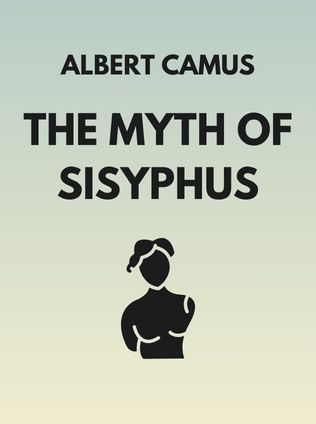
About the Author
Albert Camus, born in 1913 in French Algeria, is widely regarded as one of the most influential writers and philosophers of the 20th century. A Nobel laureate in Literature, Camus’s works are deeply rooted in his philosophical inquiries into the nature of existence, absurdity, and rebellion. He grew up in a working-class family, and his experiences in Algeria, coupled with his education in philosophy, profoundly shaped his worldview. Camus’s writings, including "The Myth of Sisyphus" and "The Stranger," reflect his belief in the absurd nature of human existence and the necessity of living with integrity and passion in the face of this absurdity.
Throughout his life, Camus was not only a philosopher and novelist but also an activist. His engagement with the French Resistance during World War II and his later opposition to totalitarian regimes underscore his commitment to justice and human dignity. Camus’s work continues to resonate today, offering profound insights into the human condition and the challenges of finding meaning in an indifferent universe.
Main Idea
In "The Myth of Sisyphus," Albert Camus presents a philosophical meditation on the absurd—the conflict between humans’ inherent need to find meaning in life and the unyielding reality that life has no ultimate purpose. Camus uses the mythological figure of Sisyphus, condemned to an eternity of futile labor, as a metaphor for human existence. He argues that, despite the absurdity of life, it is still possible, and indeed necessary, to live fully and embrace our experiences. By accepting the absurd and rebelling against it, one can achieve a sense of freedom and authenticity.
Camus’s philosophy is often associated with existentialism, though he himself rejected this label. His work, however, shares the existentialist focus on individual freedom, the rejection of traditional values, and the exploration of human isolation. Through "The Myth of Sisyphus," Camus invites readers to confront the absurd head-on and to live with courage and purpose in a world that offers no easy answers.
Table of Contents
- Introduction: Defining the Absurd
- Negative Responses to the Absurd
- Living an Absurd Life
- The Myth of Sisyphus: A Metaphor for Human Existence
- Camus’s Exploration of the Absurd in "The Stranger"
- Art and Absurdity: The Role of Creativity
- Conclusion: Embracing the Absurd
Introduction: Defining the Absurd
Camus begins "The Myth of Sisyphus" with the assertion that the central philosophical problem is suicide. For Camus, this question arises from the confrontation between humans’ desire for meaning and the universe’s indifference. The absurd is born from this clash between our expectations and the reality that the universe offers no inherent meaning or order. Camus writes:
"The absurd is the result of the confrontation between the human need and the unreasonable silence of the world." — Albert Camus
The absurd is not just a philosophical abstraction; it is a lived experience. It is the realization that our quest for meaning, purpose, and clarity will always be met with the cold, hard fact of our mortality and the universe’s indifference. Camus describes the absurd as a constant presence, an inescapable reality that we must come to terms with. However, rather than leading to despair, this recognition of the absurd is, for Camus, the first step towards living an authentic and fulfilling life.
Sign up for FREE and get access to 1,400+ books summaries.
You May Also Like
The Subtle Art of Not Giving a F*ck
A Counterintuitive Approach to Living a Good Life
By Mark MansonRich Dad Poor Dad
What the Rich Teach Their Kids About Money - That the Poor and Middle Class Do Not!
By Robert T. KiyosakiHow To Win Friends and Influence People
The All-Time Classic Manual Of People Skills
By Dale CarnegieFreakonomics
A Rogue Economist Explores the Hidden Side of Everything
By Steven D. Levitt and Stephen J. Dubner



















